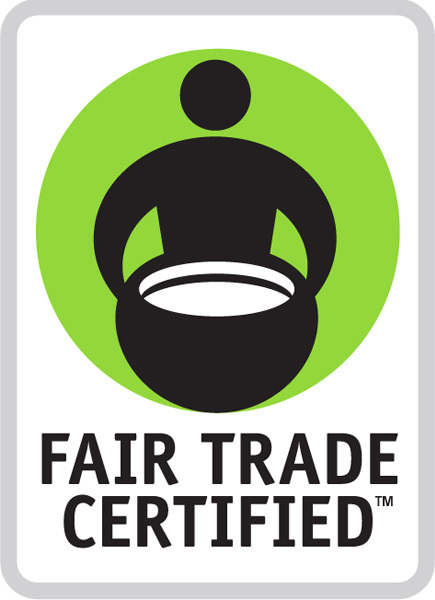Fair Trade USA Announces Winners of New Cooperative Small Grants Program
Fair Trade Coffee Cooperatives in Peru and Colombia Receive Funding to Address Key Challenges in Quality and Productivity
(3BL Media) Oakland, CA - August 3, 2012 - Fair Trade USA, the leading third-party certifier of Fair Trade products in the United States, has announced the first two winners of its new Cooperative Small Grants Program, which offers Fair Trade Certified™ coffee cooperatives access to funding for specific capacity-building projects. The winners, APROCASSI from Peru and ASOPROKAN from Colombia, were awarded a combined $40,428 to improve crop productivity and quality management.
This Grant Program is part of Fair Trade USA’s Co-op Link initiative, which connects and supports organizations throughout the supply chain to maximize the benefits of Fair Trade for small-scale farmers around the world.
Designed to create real impact in farming communities, the goals of the Grants Program are (1) to invest in small farmers as they build skills for cooperative management, and (2) to support the building of durable supply chains between cooperatives and their North American business partners. Funds are available to any Fair Trade Certified coffee cooperative not currently involved in a Co-op Link capacity-building program, and can be used on projects in the following categories:
- Quality and Productivity
- Cooperative Business Management
- Access to Finance
- Creation of Social Programs (microfinance, etc.)
- Environmental Projects
- Food Security
- Commercialization (introducing products to market)
“We would like to congratulate the winners and applaud all of the producer organizations that submitted proposals. The quality of the applications we received was outstanding,” said Laura Ann Sweitzer, Producer Services Program Manager. “It’s a clear indication of the sophistication and insight of these cooperatives to self-identify their biggest challenges and propose and execute innovative solutions.”
About the Grant Winners
The first winner, Cooperativa de Servicios Múltiples (APROCASSI), is a Peruvian coffee cooperative founded in 2000 to enable small farmers to earn a fair price for their coffee. APROCASSI is currently battling a massive infestation of roya, a leaf rust fungus, which is killing off three of their coffee varieties. The farmers are attributing this to aging coffee plants, lack of soil treatment, and changes in climate. APROCASSI was awarded $24,652 to increase coffee production and quality by (1) training 22 committees in technical plant rehabilitation and pruning, (2) partnering with Cooperativa de Ahorro y Crédito Aprocredi to form a credit program for 64 farmers to receive low interest loans to invest in fertilizers, and (3) rehabilitating 32 hectares of coffee plants in the first year.
“We are very excited to be selected winners amongst the various proposals,” said Luis Fernando Peña Parra, General Manager of APROCASSI, on behalf of the organization’s 452 members. “This grant will allow us to create a management plan to mitigate the problem of roya that is affecting our plants and consequently the well being and livelihood of our coffee farmers and families.”
Asociación de Productores Agroecológicos Indígenas Kankuamos de la Sierra Nevada de Santa Marta (ASOPROKAN), the second grant winner, is a Colombian coffee cooperative founded in 2008 by 150 members of the Kankuamo indigenous community. ASOPROKAN was awarded $15,776 to invest in quality improvement to further differentiate their coffee in international markets. They plan to use their funds to improve their quality management system. Specific projects include (1) constructing a coffee quality lab, (2) contracting experts for technical assistance training, (3) designating leaders in the community to ensure these quality measurements are applied, (4) training 10 female cuppers to support women leadership, and (5) hiring and training personnel to administer their new improved internal quality control system.
“We know that quality is a vehicle to increase the income and quality of life of farmers,” said Solón Arias, ASOPROKAN’s General Manager. “This (grant) support is significant to the long-term development of coffee quality in our community.”
Fair Trade coffee cooperatives from Africa, Asia and Latin America submitted 43 applications for this grant. Fair Trade USA carefully selected 5 finalists, which were then reviewed by a Grant Selection Committee made up of six external industry experts, including:
- Flavio Meira Borem--Universidad Federal de Lavras (UFLA) (Brazil)
- Aimee Russillo--Liseed Consulting
- Jorge Cuevas--Sustainable Harvest Mexico
- Karla Diab--Unitrade Coffee (Guatemala)
- Mery Santos--International Women’s Coffee Alliance (IWCA)
- Alex Katona-- Coffee Quality Institute (CQI).
Fair Trade USA will implement two rounds of the Grant Program in 2012, the second of which will be announced in September. A total of $65,000 will be disbursed this year with plans to grow the fund in 2013.
The Cooperative Small Grants Program, along with other ongoing Co-op Link projects, is part of Fair Trade USA’s Fair Trade for All initiative, designed to strengthen farming communities and include more farmers and workers, ultimately doubling the impact of Fair Trade by 2015.
# # #
Fair Trade USA, a nonprofit organization, is the leading third-party certifier of Fair Trade products in the United States. Fair Trade USA audits and certifies transactions between U.S. companies and their international suppliers to guarantee that the farmers and workers producing Fair Trade Certified goods were paid fair prices and wages, work in safe conditions, protect the environment, and receive community development funds to empower and improve their communities. Fair Trade USA also educates consumers, brings new manufacturers and retailers into the Fair Trade system, and provides farming communities with tools, training and resources to thrive as international businesspeople. Visit www.fairtradeusa.org for more information.
Editor’s Notes:
These grants are made possible by charitable donations from foundations, development organizations, and independent philanthropists, as well as service fees paid to Fair Trade USA by more than 700 business partners.

